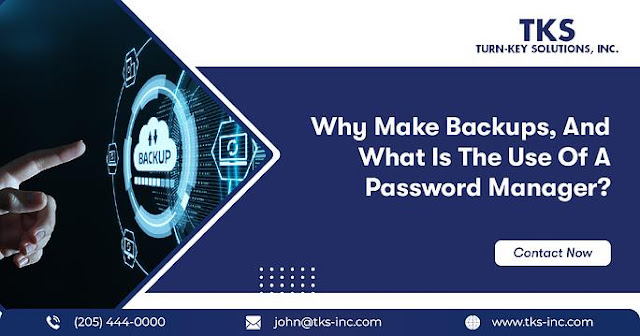Backup is the action of copying and storing data to protect it from loss or corruption. It is essential to ensure the availability and integrity of data at all times, regardless of the circumstances.
Reasons for Backing Up?
There are several
reasons why backup is important. First, it helps protect data in the event of
accidental loss or corruption. For example, if a hard drive fails, the data
stored on it will be lost unless it has been backed up first. Likewise, if data
is corrupted, it can be restored from a backup.
Backup is also important to ensure business continuity in a disaster, such as a fire or a flood. If data is stored only in one location, it will be lost if that location is damaged or destroyed. By performing regular backups, you can be sure that your data will be available even in the worst circumstances.
Finally, the backup can be used to perform updates and configuration changes securely. If you change your system and something goes wrong, you can restore data from a backup and undo the changes. This allows you to make updates and changes securely without fear of losing your data.
Why Maintaining A Backup System Is Important?
Setting up an effective backup system and maintaining it is important. This may involve setting up different backups, such as local backups, network backups, or cloud backups. Whichever system you choose, it's crucial to regularly check that backups are done correctly and test them to ensure they're usable when needed.
In summary, backup is essential to protect data against loss or corruption, ensure business continuity during a disaster, and securely perform updates and configuration changes.
What Is A Password Manager Used For?
A password manager is a tool that allows you to store and manage all of your passwords securely. It allows you to create strong, robust, and unique passwords for each site you use without memorizing them. It allows an automated entry, offering by this process absolute anti-phishing protection!
Using a password manager will help you manage your passwords and create new ones more easily and highly securely.
The application also exempts you from memorizing all your passwords, thus making it possible to use a unique password! No need to remember all the passwords; the manager does it for us. You can install it on your browsers, computers, and smartphones.
The user will have a
single strong password to remember to access all of his passwords stored in an
encrypted database.
Benefits of Using a Password Manager
Here are some benefits
of using a password manager:
- Security: A password manager securely encrypts and protects
your passwords, reducing the risk of hacking.
- Practical: you will no longer have to remember all your
passwords, which can be tedious. You can access all of your accounts using
a single master password.
- Creating strong passwords: Most password managers have tools that help you
create strong passwords that are hard for hackers to guess.
- Sync: You can sync your password manager across multiple
devices, allowing you to access your passwords from anywhere.
Several password managers are available on the market; some are more famous, and some are less.
Visit the Turn-Key Solutions (TKS) website to get the best IT Services in Alabama. We are an IT Solutions Provider company that provides secure managed services. Contact us
for more information! Our trustworthy team is there to provide you with
tailor-made IT solutions adapted to your digitalization and growth objectives
while considering your current and future organization.


Comments
Post a Comment